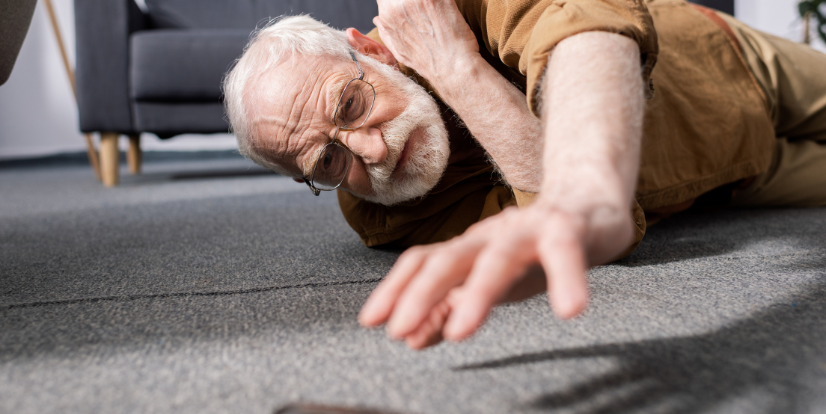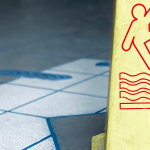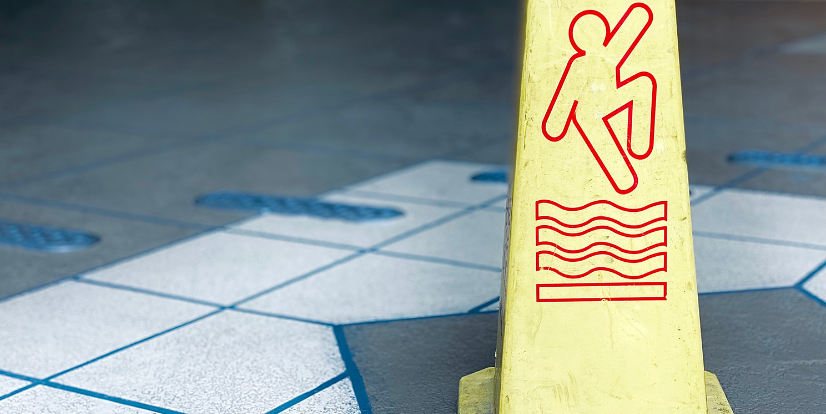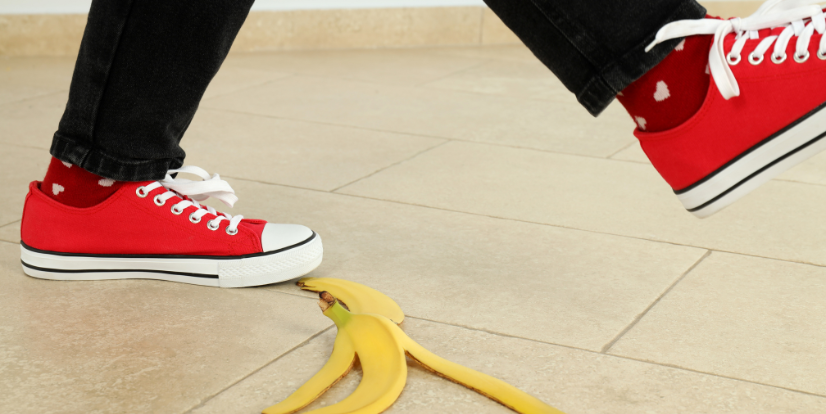What to Do if You Slip and Fall?
Slip and fall accidents are common but often underestimated. Even seemingly minor falls can lead to serious injuries. Slip and falls are actually the second leading cause of unintentional injury deaths globally. Considering the potential severity of these injuries, it’s essential to take immediate action to avoid complications.
In this article, we’ll discuss what to do if you slip and fall, the warning signs to watch out for, and how to recover quickly.
What to Do If You Slip and Fall
If you slip and fall, the first thing to do is stay calm. It might take a few minutes for pain to develop, so use that time to assess whether you’re injured. Here’s what you should do next:
- Check for injuries: Try to determine if you’re in any pain or have sustained any injuries.
- Get up carefully: If you’re able to move without severe pain, follow these steps to safely get up:
- Roll onto your side.
- Push yourself onto your hands and knees.
- Use a sturdy object, like a chair or sofa, to help yourself up.
- Sit for a few moments to ensure you’re stable before standing fully.
If you’re in severe pain, particularly in your muscles or joints, or if you can’t move, ask for help and seek medical assistance immediately.
While waiting for help, keep yourself warm and hydrated. Moving your limbs slightly can also help prevent stiffness and further injury.
How Long After a Fall Should I Be Concerned?
If you’ve had a slip and fall, it’s important to recognize when to be concerned. Even if the fall seems minor, injuries can worsen over time. You should see a healthcare professional if:
- You hit your head or spine.
- You feel lingering pain, especially in the hours or days after the fall.
- You have difficulty moving or experience ongoing pain in your joints or muscles.
Head and spinal cord injuries are particularly dangerous and should always be checked by a doctor, even if you feel fine immediately after the accident. A medical professional can conduct a thorough evaluation to rule out any serious damage.
What Happens to Your Body After a Hard Fall?
Falls can cause a range of injuries, from bruises to broken bones. Here are common physical consequences of a hard fall:
- Broken bones: Wrists, arms, ankles, and hips are the most common fracture sites.
- Head trauma: Even if you feel fine after hitting your head, a fall could lead to a traumatic brain injury (TBI), which can have long-term effects.
- Fear of falling: A serious fall can create a fear of future falls, limiting mobility and leading to a cycle of inactivity and weakness.
If you suspect a brain injury or other serious complications, see a doctor immediately. Symptoms like nausea, dizziness, blurred vision, or difficulty concentrating can indicate a more severe issue.
How to Recover Quickly from a Fall
The key to a fast recovery after a fall is early intervention. Here’s what you should do:
- Consult a healthcare professional: Even if you feel fine, it’s essential to get a professional assessment, especially for head or spinal injuries.
- Follow medical advice: Your doctor may recommend rest, physical therapy, or additional treatments, such as pain management or mobility aids.
- Work with specialists: Depending on the severity of your injury, a physiotherapist or occupational therapist can help speed up your recovery.
- Stay active: If possible, gentle movement can help maintain strength and prevent stiffness, but always follow your doctor’s recommendations.
How Long Should Your Body Hurt After a Fall?
It’s normal to feel sore after a fall, but the pain should subside within a few days to a week. If your pain persists beyond this timeframe, or if it worsens, you should consult your doctor. Persistent pain could indicate a more serious injury that requires further treatment.
What Is the Best Pain Relief After a Fall?
To manage pain after a fall:
- Over-the-counter pain relievers, such as ibuprofen or acetaminophen, can reduce inflammation and alleviate discomfort.
- Ice packs applied to the affected area can help reduce swelling and numb pain.
- Rest is crucial, but be mindful of maintaining some level of movement to avoid stiffness.
If over-the-counter treatments aren’t enough, your doctor may prescribe stronger medications or recommend physical therapy to manage ongoing pain.
Conclusion
Slip and fall accidents can have serious consequences, even if they seem minor at first. It’s essential to assess your injuries immediately after a fall, seek medical attention when necessary, and follow the advice of healthcare professionals for a quick recovery. If you or a loved one has experienced a slip and fall and need medical intervention, don’t hesitate. Know Your Health can connect you with top emergency medical services that provide high-quality care at affordable prices.






